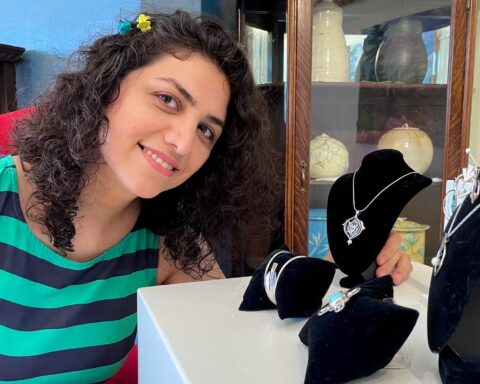Prime Minister Stephen Harper should take his own advice on engaging with Cuba and work towards similar efforts with Iran, experts say.
At the Summit of the Americas in Panama City this weekend, Harper made time for a “good and long discussion” with communist Cuba leader Raul Castro — just three years after vetoing the country’s participation at the same meeting. Speaking to reporters shortly afterwards in Panama City, Harper explained his change of heart: “I have become convinced that a different approach is appropriate at this point in time … We’re at a point where an engagement is more likely to lead us to where we want to go than continued isolation.”
But that approach stands in stark contrast to the government’s positioning around engagement with another controversial regime: Iran.
“It has not been possible to isolate [Iran], and it’s time to try cautious engagement.” – Peter Jones, associate professor, University of Ottawa
Peter Jones, an associate professor at the University of Ottawa focusing on the Middle East and a former senior analyst for the Security and Intelligence Secretariat of the Privy Council of Canada says Harper is right in saying that regimes such as Cuba’s need to be cautiously engaged to see if change is possible.
“Trying to fully isolate such regimes doesn’t work unless all members of the international community are prepared to join, and they were not in the case of Cuba,” said Jones. “The same thing can be said of Iran. It has not been possible to isolate it, and it’s time to try cautious engagement.”
While the Harper government’s policies around Iran are in line with those of Western allies like the U.S., its rhetoric has been pointedly harsher.
Manichean Views
Three years ago, Harper called Iran the “world’s most serious threat to international peace” and has said it will judge Iran on its actions rather than its words when it comes to considering any engagement with the regime.
“Canada has taken quite hostile positions rhetorically towards Iran. We do have a harsher stance than some of our allies,” said Thomas Juneau, an assistant professor at the University of Ottawa and former Middle East strategic analyst for the Department of National Defence. “Part of the answer is this government, i.e: this (prime minister), holds quite Manichean views.”
In contrast, U.S. President Barack Obama has led negotiations with Iran towards a much-hoped for nuclear deal that would limit the country’s ability to enrich nuclear-grade uranium while also lessening some sanctions.
“Stephen doesn’t change his mind easily, but he will change in response to evidence. Think how he changed on Afghanistan and China, as well as Cuba. He won’t change his commitment to Israel, but he could change his views on Iran if that regime starts to behave differently.” – Tom Flanagan, former Harper advisor
While that engagement has come under harsh criticism, it has also been hailed as a significant step towards a new kind of diplomatic relationship with the country.
“The doctrine is: We will engage, but we preserve all our capabilities,” Obama said in an April 5 New York Times interview. “What we’ve seen over the last several years, I think, is the opportunity for those forces within Iran that want to break out of the rigid framework that they have been in for a long time to move in a different direction. It’s not a radical break, but it’s one that I think offers us the chance for a different type of relationship, and this nuclear deal, I think, is a potential expression of that.”
Recent government criticism of Iran has focused on its abysmal human rights record and its lack of democracy, both of which Harper highlighted as ongoing concerns in Cuba as well. Given the Harper government’s unequivocal support of Israel, the fact that Iran is considered by Israel to be an existential threat also informs the dynamic.
Open Engagement is Way to Proceed
Even so, opening the path to engagement rather than focusing on isolation is the only way to move forward in addressing those, Jones said.
“I hope Mr. Harper will follow the logic that he has outlined on Cuba,” he noted.
Harper’s former top advisor, Tom Flanagan, says a change in the government’s refusal to engage with Iran isn’t out of the question.
But, it would all come down to whether Harper sees proof Iran is moving towards a direction he approves of.
“Stephen doesn’t change his mind easily, but he will change in response to evidence. Think how he changed on Afghanistan and China, as well as Cuba,” said Flanagan.
“He won’t change his commitment to Israel, but he could change his views on Iran if that regime starts to behave differently.”
Published in partnership with iPolitics.ca




